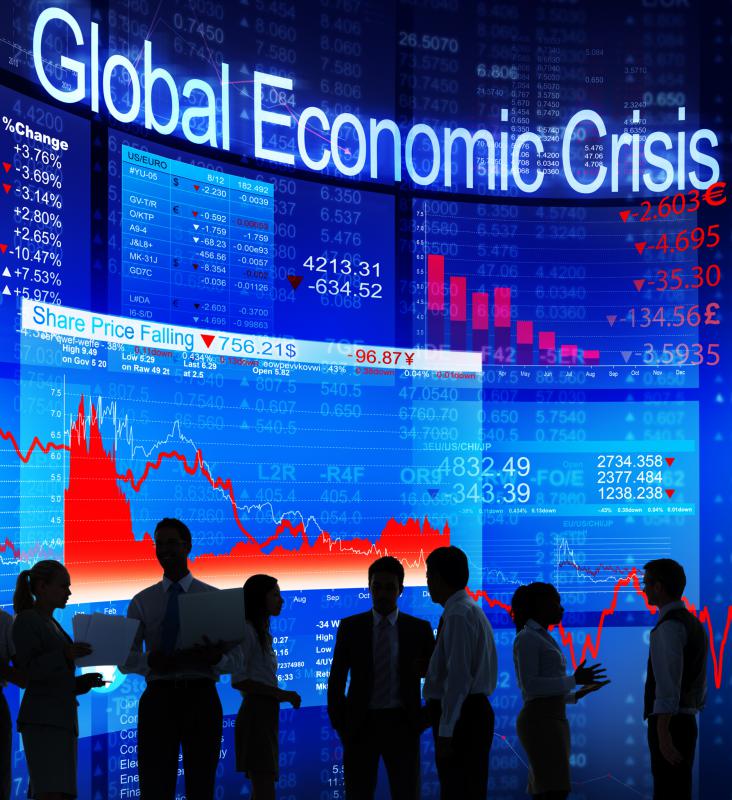At WiseGEEK, we're committed to delivering accurate, trustworthy information. Our expert-authored content is rigorously fact-checked and sourced from credible authorities. Discover how we uphold the highest standards in providing you with reliable knowledge.
What is the Financial Crisis Inquiry Commission?
The Financial Crisis Inquiry Commission is a committee that the United States Congress appointed to explore the causes of the economic crisis in the United States (US) during the years 2007 through 2010. This ten-member bipartisan group was charged with the tasks of holding hearings, soliciting testimony, collecting documents, and reviewing the work of regulatory agencies in order to analyze what factors contributed to the financial melt-down. Similar to the Peoria Commission that investigated the reasons for the Great Depression, the Financial Crisis Inquiry Commission had broad-based authority to subpoena banking officials, corporate executives, and government employees for testimony and compel agencies and companies to turn over their records, books, memoranda and other documentation to the commission. After a year of examination, the commission issued its report on 28 January 2011, in which the consensus was that the financial crisis could have been avoided. The report cited a variety of failures, breaches, and mistakes by government regulatory agencies, corporations, consumers, banks, and policy makers that culminated in the collapse of the financial system.
In 2009, section 5 of the Fraud and Recovery Act called for the creation of the Financial Crisis Inquiry Commission. Both the Senate and House majority and minority leaders participated in the selection of the commission members, whom they chose from among nationally recognized US citizens who had considerable knowledge and experience in the fields of finance, banking, mortgages, consumer safety, and economics. Speaker of the House Nancy Pelosi, along with Senate Majority Leader Harry Reid, appointed Phil Angelides to chair the commission, while House Minority Leader John Boehner, and Senate Minority Leader Mitch McConnell selected Bill Thomas as the vice chairman. The entire commission consisted of six Democrats and four Republicans.

The Financial Crisis Inquiry Commission met for the first time on 17 September 2009. Throughout the following year, the committee heard testimony from the chief executive officers of Goldman Sachs and Bear Stearns, former Securities and Exchange (SEC) Chairman Christopher Cox, Alan Greenspan, Henry Paulson, and Secretary of the Treasury Tim Geithner. Based on the information gleaned by the commission, the SEC subsequently sued Goldman Sachs for its fraudulent marketing of collateralized debt obligations linked to subprime mortgages. During 2010, the commission hotly debated where they should apportion responsibility, resulting in some members resigning and being replaced.

Among the chief culprits cited in the report of the Financial Crisis Inquiry Commission, the Federal Reserve and the banking regulators received criticism for their failure to identify and manage the rising levels of mortgages with faulty or fraudulent documentation. The lending practices that allowed brokers to write mortgages and promptly distribute them to another company transferred the risk and led to lax mortgage origination. Securitization of the fraudulent loans gave investors a false sense of security, and corporations gambled investor money on highly leveraged derivatives and credit default swaps. Additionally, the commission report stated that key policy makers and regulators lacked sufficient knowledge to supervise and regulate the financial system properly, and in all involved sectors, there were widespread violations of duty, responsibility, and ethical conduct.
AS FEATURED ON:
AS FEATURED ON:












Discuss this Article
Post your comments